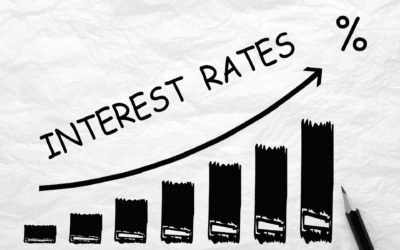Every month, a big payment comes out of your bank account that you probably wish didn’t. Mortgage payments are a way of life for many homeowners, and each payment brings you that little bit closer to owning your home and financial freedom.
If you happen to have space money available, you might think, ‘well why can’t I pay it off early?’. And the good news is you can, just not all in one go. By overpaying your mortgage, you could significantly reduce your mortgage term – but there are some things you need to consider first.
The Benefits Of Overpaying Your Mortgage
Cut debt and interest together: The biggest and perhaps most obvious benefit to overpaying your mortgage is that you’re reducing the overall debt you owe, bringing you one step closer to a mortgage-free life. Done right you could pay off your mortgage months to even years early. On top of that, overpaying brings down the amount of interest you pay, and the total amount you’ll be paying over the mortgage term.
Best low savings rates: There is always the debate on whether to save money, or to use it to overpay your mortgage. But the likelihood is that the amount you save by overpaying your mortgage is much higher than you’d earn from putting it in savings. For example, say you had £15,000 in cash. If you put it into a savings account with 0.1% simple interest, you would earn around £15 a year on it. Even if that interest was compounding, that’s still only £180.00 a year. But if you used that sum to overpay your mortgage, you would save around £11,210 in interest payments.
Access better mortgage deals: It might surprise you to know that not everyone overpays their mortgage with the goal of getting it paid off completely. Instead, they do it in order to access more favourable deals upon remortgage. This works because overpaying reduces your Loan-To-Value (LTV), which is the portion of your property covered by the mortgage. It goes down if your property value goes up and as you pay off more of your mortgage, which is why overpaying brings it down. LTV is the figure lenders use when deciding what deals to offer you, and the lower your LTV, the lower the interest rates you can access. So if you’re nearing the end of your current deal, overpaying can really pay off when it’s time to remortgage.
The Downsides…
Of course, like everything in life, there can be some downsides to paying off your mortgage early. Admittedly there aren’t many, but they can have a big impact on your mortgage and your bank balance, so it’s worth considering them before you go ahead.
Early Repayment Fees: Most fixed-rate mortgages will come with an initial tie-in period, which means you can’t leave the deal without having to pay a heavy fee. The same thing applies to overpaying your mortgage. Certain mortgage deals will not let you overpay your mortgage at all, some won’t allow it within the initial tie-in period, and most will only let you overpay a certain amount each year (around 10%). If you break these rules, you will be charged something called an Early Repayment Charge, which is usually between 1% and 5% of the balance on your mortgage. Depending on how much you have left on your mortgage, that could leave you with a significant fee to pay!
No Cash Access: Paying off your mortgage completely might be a big ambition, but it’s also important you have access to some cash reserves in case of an emergency. Often overpaying your mortgage will wipe out your access to spare cash each month, which could cause all sorts of problems for you further down the line.
Before You Overpay
If you’ve done the research and think overpaying your mortgage might benefit you, there are a few things to think about first. After all, your mortgage isn’t the only thing going on in your life, and we need to make sure you won’t be making things harder for yourself by overpaying. So before you start, check these three things.
Do you have any other, expensive debts? One of the biggest rules of debt repayment is that you clear the most expensive debts first. This is so the interest doesn’t build up as quickly, saving you money and giving you a better chance of clearing the debts earlier. So, if you have other expensive debts outstanding, it’s worth clearing them first before you overpay your mortgage. This includes things like student debt, or 0% credit cards.
Can you overpay without penalty? As we mentioned earlier there are many lenders who will actually charge you for paying back your mortgage early. Most will have an annual limit on the amount you can overpay without incurring charges (usually around 10%), so you need to check that the amount you want to overpay stays within that limit. If you go over it, it could cost you thousands of pounds in fees.
Do you have a good emergency fund? You never know what life is going to throw at you, which is why it’s always good to have an emergency fund. Any financial adviser will tell you that you should have an emergency fund of between 3-6 months of your salary in an easily accessible savings account. If the only debt you have is your mortgage, then you should work on building this up before you start overpaying.
At Easy Street we don’t just help you get a mortgage and buy a house. We want to make sure that you can own that house outright as quickly as possible, getting you mortgage-free and enjoying life. We’re always happy to provide information and advice to help you buy, keep and own your property, including if overpaying your mortgage is the right step for you. If you’d like to talk to one of our advisers, just get in touch with the team today.




